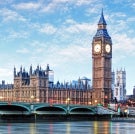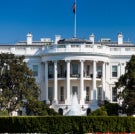Rishi Sunak is facing a backlash over “irresponsible” plans to ban sex education for children under nine while limiting it for children under 13.
The prime minister has been accused of using children as a “political football” over plans to ban all sex education in primary schools until year five. Lessons would then focus simply on conception and birth, with no explicit discussions of sexual acts until they are 13 and over, according to reports.
Domestic violence, coercive control and sexual violence would also not be discussed until children reach 13 under the guidance, due to be announced by education secretary Gillian Keegan. Children would also not be taught about contraception, sexually transmitted infections, and abortion until age 13.
Critics of the plans told The Independent it would lead to a rise in sexual and homophobic bullying and leave young people at risk of being sexually abused by their peers.
The National Education Union said the guidance failed to account for the fact children and young people already get information about sex and relationships from the internet and on the playground.
General secretary Daniel Kebede said they need the opportunity to discuss puberty and relationships with trusted adults.
He said: “Issues such as domestic violence can affect children from a young age and it is irresponsible to shut out this conversation until teenage years. We must also challenge widespread patterns like sexual bullying and homophobic bullying which start in primary school.”
The Gemini Project, a charity campaigning to end sexual violence, told The Independent mandatory consent lessons should be taught in all primary and secondary schools “as a matter of safeguarding”.
Policy director Verity Nevitt said the guidance was “short-sighted, particularly for the current generation of children who are even more exposed to graphic sexual content than older Gen Zs and millennials”.
“This, coupled with exposure to influencers like Andrew Tate, mean young people are at risk of harmful sexual abuse perpetrated by their peers,” she said.
Ms Nevitt added: “I cannot understand why this government would want to make life worse for young people by failing to ensure they receive effective, age-appropriate sex and relationships education. The prevention of a lifelong trauma of sexual abuse should be prioritised.”
The new guidance will also make clear that gender identity is seen as a contested subject by ministers and teachers should focus on “biological” facts about sex.
Mr Sunak was accused of stoking a culture war after the leaked plans showed ministers were to tell teachers not to teach children about gender identity.
This latest foray into the culture wars followed a major speech on Monday by the common sense minister Esther McVey unveiling new civil service rules to end so-called “woke activism” in Whitehall and other departments.
Pollsters warned the PM that stoking culture wars would “not save the Tories”, while Labour leader Sir Keir Starmer mocked Mr Sunak’s attempts to ban “rainbow lanyards”.
Pepe Di’Iasio, general secretary of the Association of School and College Leaders, told BBC Radio 4’s Today programme: “Pupils are being placed in the middle of a highly sensitive subject and being used as a political football for the sake of headlines when we should be focusing on their wellbeing.”
Existing guidance for schools outlines broad lesson modules stating that primary-aged children should be taught about different types of families and healthy relationships.
Secondary pupils aged children meanwhile are taught more complex topics, including puberty, sexual relationships, consent, unsafe relationships and online harms. RSHE (relationship, health and sex education) was made mandatory in all schools in England from September 2020.
Paul Whiteman, general secretary at school leaders’ union NAHT, said good sex education is “vital to help safeguard young people and prepare pupils for the opportunities, responsibilities and experiences of adult life”.
He added: “We have serious concerns about how potential ‘limits’ would work in practice. Schools already work hard to ensure that the curriculum and teaching is age-appropriate based on the current government guidance and have the vital flexibility to respond to their own community and the needs of pupils in their schools. Curriculum content is also shared and discussed with parents.”
The End Violence Against Women Coalition (EVAW) said RHSE for children is the “cornerstone of preventing violence against women and girls”.
EVAW director Andrea Simon said: “They must be given the tools to understand the foundations of consent and healthy relationships. Empowering children with this information can help reduce violence and abuse as they go on to form romantic relationships.”
A study by the government’s Office of the Children’s Commissioner found that the average age children first see pornography is 13, while almost a third of children had seen it by age 11. Before the age of 18, eight in 10 people had encountered pornography depicting coercive, degrading or pain-inducing sex acts.
The prime minister commissioned a review into the curriculum after hearing concerns, including from Conservative MPs, that children were receiving sex education lessons at too young an age.
Other measures set to be announced by Ms Keegan after the review include a requirement for schools to provide parents with samples of the material their children will be taught to quell these fears.
The Department for Education said it could not confirm the newspaper reports and it would not speculate on leaks. However, sources stressed that the full guidance would have dedicated sections dealing with sexual violence.
Source: independent.co.uk



